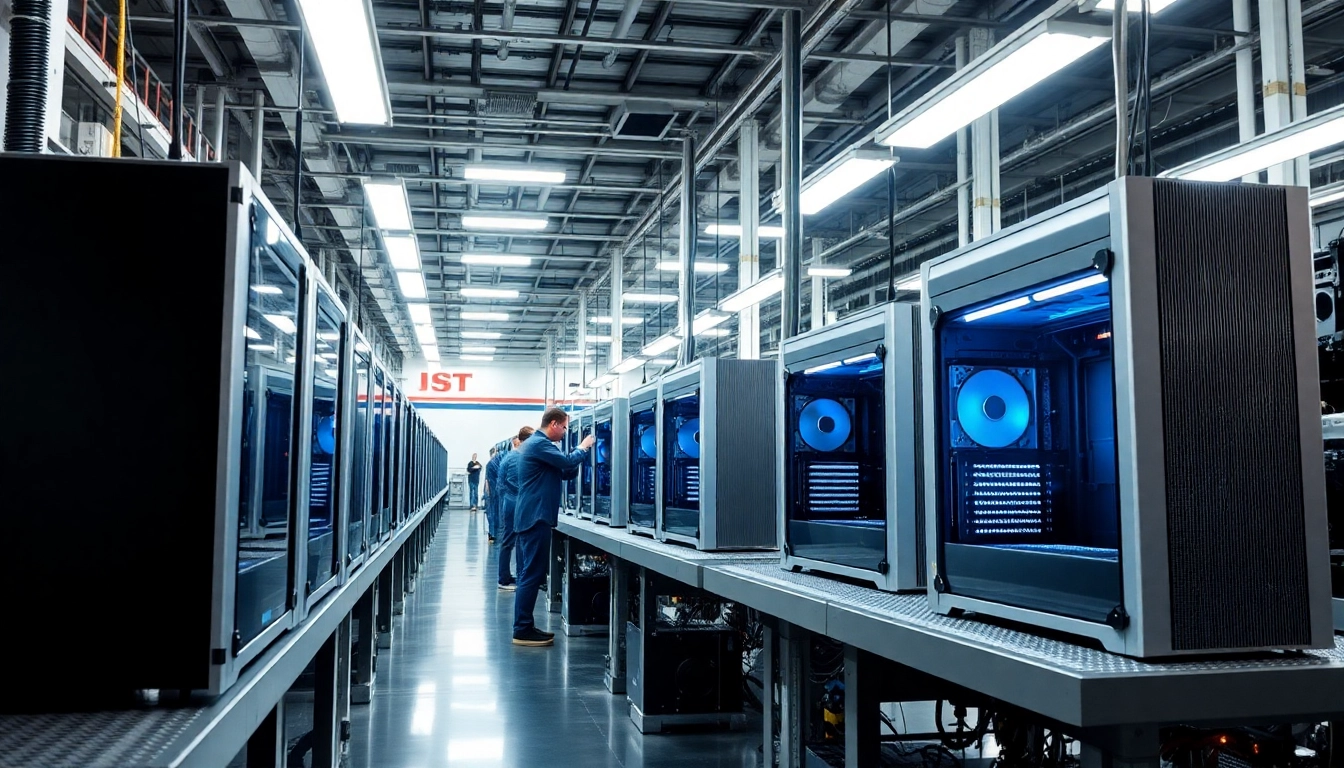A Comprehensive Guide to PC CASE Manufacturing
The world of PC building is as exciting as it is complex. A critical aspect of this hobby or profession is choosing the right PC case, an area where an adept PC CASE Manufacturer can significantly influence the success of your project. This guide covers everything you need to know about PC case manufacturing, from understanding its role to the latest industry trends. Whether you’re an enthusiast or a professional, our detailed exploration will provide you the knowledge necessary to make informed decisions concerning PC cases.
1. Understanding the Role of a PC CASE Manufacturer
PC case manufacturers play a vital role in the PC building ecosystem. They are responsible for producing the physical enclosures that house components like the motherboard, power supply, and graphics card. High-quality manufacturers ensure that these cases are not only aesthetically pleasing but also functional and durable. They focus on various important aspects, including:
- Material Selection: The materials used impact both the case’s weight and thermal performance.
- Design Innovation: Manufacturers are constantly innovating to offer unique designs that appeal to various aesthetic preferences.
- Cooling Solutions: Effective airflow management is a crucial feature, influencing the performance and longevity of PC components.
- Customization Options: Many manufacturers offer tailored solutions to meet specific needs, from individual gamers to large-scale enterprises.
2. Key Features of Quality PC Cases
When evaluating PC cases, several key features stand out that determine their quality and usability:
- Airflow Management: Good ventilation solutions are crucial for driving performance, helping to keep components cool.
- Modularity: Cases that allow for easy modifications and upgrades can save money in the long run.
- Expansion Options: Ample slots for additional drives, fans, or even radiators for liquid cooling can enhance functionality.
- Build Quality: A solid build with sturdy materials (like steel or aluminum) ensures durability over time.
3. Top Materials Used in PC Case Production
The choice of materials is paramount in the manufacture of quality PC cases. Here are the most commonly used materials:
- Steel: Known for its strength and durability, steel is often used in mid to high-end cases.
- Aluminum: Light and aesthetically pleasing, aluminum cases offer a premium feel but come at a higher cost.
- Plastic: Often used for budget cases; while lightweight and cheaper, plastic may not offer the same durability.
- Tempered Glass: Increasingly popular for aesthetic reasons, tempered glass panels allow users to showcase their builds.
Choosing the Right PC Case for Your Needs
Selecting the right PC case is a vital step in any build. With a plethora of options available, understanding your specific requirements can streamline the decision-making process.
1. Form Factors Explained: ATX, Micro-ATX, and Mini-ITX
Form factors dictate the physical dimensions and layout of your components. Here are the main types:
- ATX: The standard form factor, ideal for those looking for plenty of expansion slots and features.
- Micro-ATX: A more compact version of ATX, suitable for users who need moderate expandability without excess size.
- Mini-ITX: The smallest of the three, perfect for building portable systems or saving space in small areas.
2. Cooling Solutions and Airflow Management
Effective cooling is essential for optimal PC performance. Good case designs include various cooling options:
- Air Cooling: Utilizing fans, airflow routes are optimized to move heat away from critical components effectively.
- Liquid Cooling: Many enthusiasts opt for custom water cooling solutions, which often require specially designed cases to accommodate larger radiators and reservoirs.
- Dynamic Airflow: Look for cases with adjustable airflow configurations that support various fan configurations.
3. Aesthetic Considerations: RGB Lighting and Design
While performance is key, aesthetics also play a significant role. Many users prefer cases that enhance their visual appeal with features such as:
- RGB Lighting: Addressing the gamer’s desire for a personalized setup, manufacturers have integrated customizable LED options in many cases.
- Transparent Panels: Clear or tinted glass panels allow users to show off their carefully curated components.
- Color Schemes: Cases now come in various colors and finishing options, allowing users to match their setups to their personal style.
The Customization Process with a PC CASE Manufacturer
Customization is a growing trend within PC building circles. Here are the components to consider when working with a PC case manufacturer:
1. How to Communicate Your Vision
Effective communication with your manufacturer ensures that your requirements are met. This includes:
- Specification Clarity: Get clear on sizes, materials, and design choices.
- Visualization: Providing sketches or examples can help convey your ideas effectively.
- Iterative Feedback: Don’t hesitate to ask for updates and provide feedback at multiple stages in the manufacturing process.
2. Common Custom Features and Add-Ons
Customization may involve a variety of features and options, such as:
- Personalized Panels: Engraving options, custom logos, or artwork.
- Additional Cooling Solutions: Space for more fans or liquid cooling configurations.
- Storage Compartments: Custom slots for SSDs and HDDs to maximize space efficiently.
3. Understanding Pricing for Customized PC Cases
Pricing varies based on complexity and materials. Here are factors that can influence costs:
- Material Costs: Higher quality materials will generally increase the price.
- Complexity of Design: Intricate designs or custom features can add to the final cost.
- Brand Reputation: Well-known manufacturers may charge a premium for their established reputation.
Industry Trends in PC Case Manufacturing
The PC case industry is constantly evolving, adapting to new technologies and consumer demands. Key trends include:
1. Sustainable Practices in Case Manufacturing
More manufacturers are focusing on sustainability, employing practices that minimize waste and the environmental impact of production. This includes:
- Recyclable Materials: Cases made from recycled materials reduce demand for new resources.
- Eco-Friendly Manufacturing Processes: Energy-efficient production methods are increasingly utilized.
2. Innovations in Cooling and Design
Innovations are continually emerging to improve cooling efficiency and design aesthetics:
- Advanced Airflow Designs: Manufacturers are experimenting with different ducting methods to optimize airflow.
- Smart Cooling Solutions: Incorporating IoT technology to monitor temperature and fan speeds dynamically.
3. The Rise of Compact Builds and Mini Cases
Mini-ITX and compact case designs have surged in popularity for several reasons:
- Space Efficiency: Ideal for users with limited setups, minimizing desk space without sacrificing performance.
- Portability: Smaller builds make travel easier for gamers and professionals.
Measuring the Success of Your PC Case
After selecting and utilizing a PC case, it’s vital to assess its performance and user experience. Here’s how to gauge success:
1. Performance Metrics: Heat Management and Durability
Evaluating performance includes:
- Temperature Monitoring: Use software tools to check GPU and CPU temperatures while gaming or under load.
- Durability Tests: Assessing how well the case endures stress, vibrations, and potential impacts.
2. User Feedback and Reviews
Collecting reviews from your user community can provide insight into the overall satisfaction with the case:
- Community Forums: Engaging in discussions about user experiences ensures you stay informed about any shortcomings.
- Dedicated Review Sites: Referencing detailed reviews can help clarify the overall performance of specific cases.
3. The Importance of Warranty and Support
A solid warranty and support system contributes to consumer trust and product longevity:
- Warranty Coverage: Be sure to check how long the warranty lasts and what it covers.
- Customer Support: Reliable customer service adds value, ensuring that issues can be quickly resolved.



